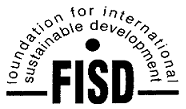There are no geographical restrictions for projects that are eligible for the support of the FISD. The only requirement is that the projects correspond with the foundation's objectives.
Based on the entrepreneur's business plan, we evaluate whether assistance is genuinely needed and the amount of assistance that is required. The foundation also determines how much it wants to and can contribute, and whether a realistic system of repayment can be agreed.
The project is then evaluated according to the following criteria:
 |
Capital gearing of the capital contribution |
 |
Social relevance |
 |
Manageability |
 |
Preferably with good fundraising prospects |
Capital gearing is employed when a guarantee or small loan can lead to regular financing or donations from third parties. Projects in 'low-cost' countries, i.e. where higher (social or environmental) returns can be realized per euro, are also included in this category.
The foundation's board is committed to socially relevant projects. This means that, in addition to sustainability and economic aspects, issues such as social and cultural aspects can also be taken into consideration when assessing a project. For example, a project that seeks to bring about both environmental improvements and improved living conditions for the local population is considered doubly beneficial.
Projects should also be manageable. In time, good management should deliver the results the project set out to achieve. Only well thought-out business plans are considered for assessment.
Fundraising promotes the continuity and scope of the FISD's endavours. This is why projects that will generate publicity are preferably selected. The image of such projects simplifies the process of raising new funds.
The FISD board of directors assesses the projects according to all of these criteria. A projects is only approved with a unanimous vote. Suitable support is offered if the business plan corresponds with the objectives and criteria of the FISD. The foundation furthermore establishes agreements regarding the manner in which the results of the project are reported.










